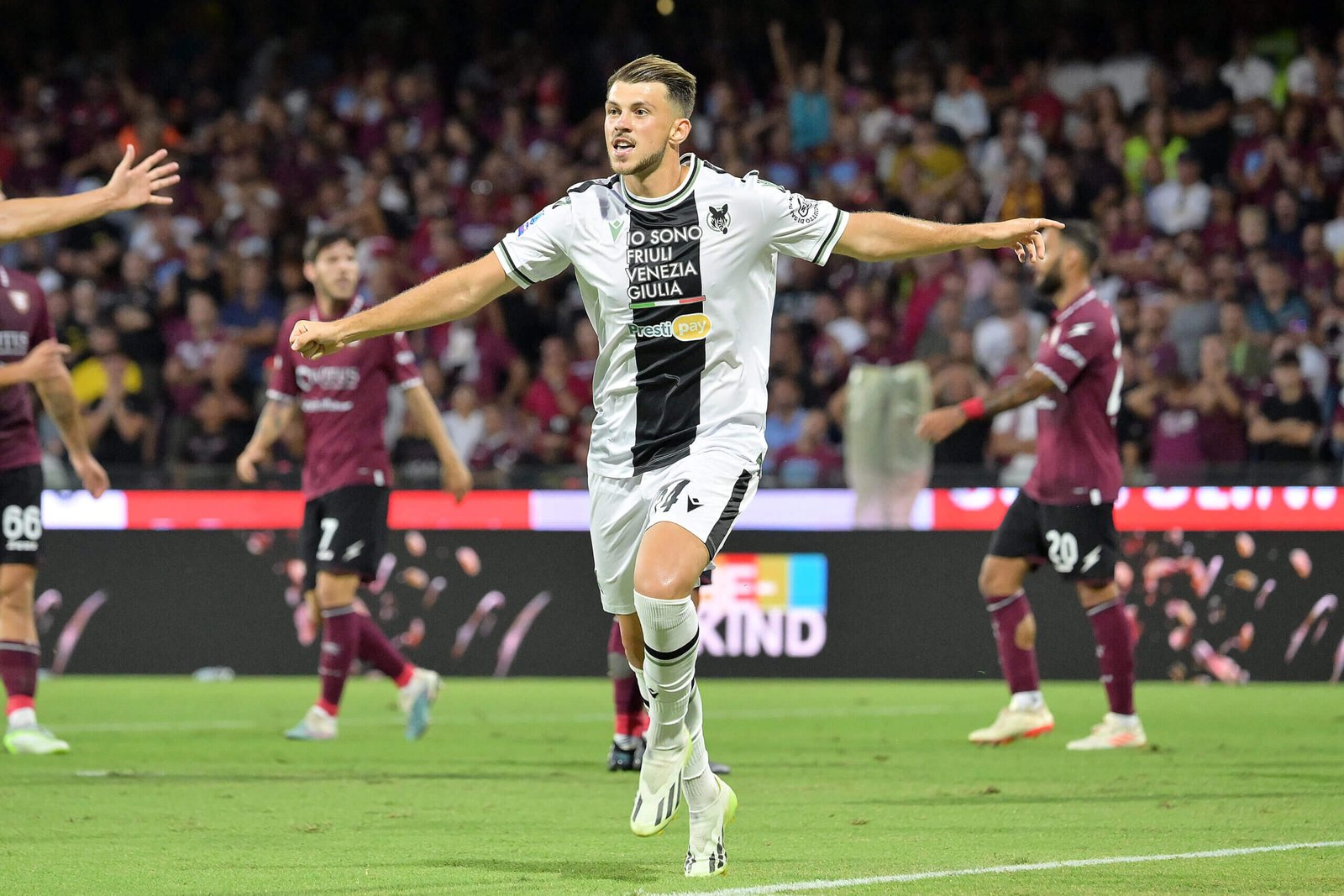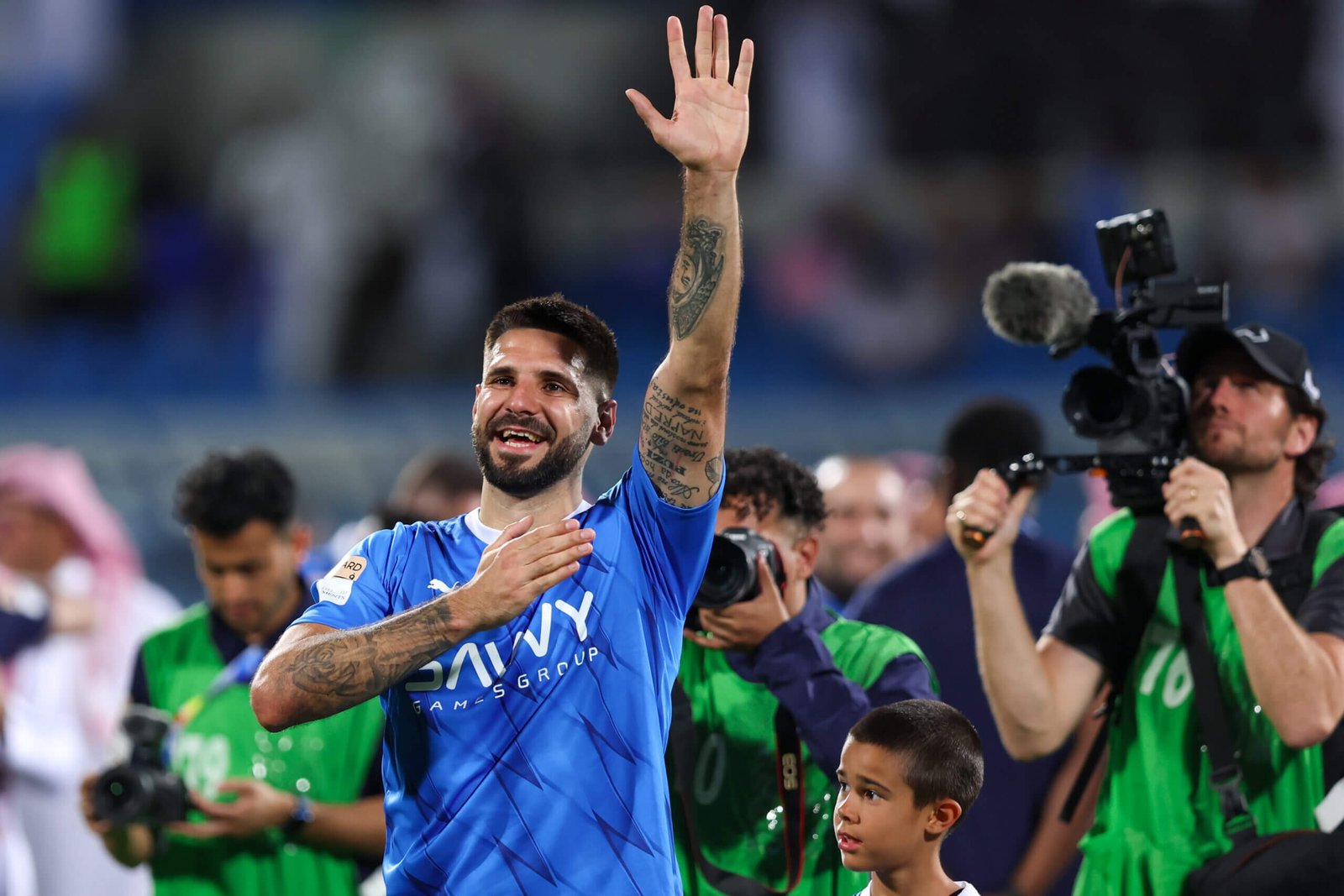Back home, fans have little hope of Serbia doing much at this tournament. Yet there is a lot of quality in the squad, a few of whom are able to physically dominate, which might cause some trouble for the defensively frail teams they are grouped with. Might England get an unpleasant surprise?
How to follow Euro 2024 on The Athletic…
The Manager
Dragan Stojkovic is not popular.
This is the second successive tournament that he has taken Serbia to. Nevertheless, his team have been in a lull since Qatar, where they failed to win any of their games (against Brazil, Cameroon and Switzerland). They qualified for Germany in second place, but they still lost home and away to Hungary, displaying tactical issues that continue to compromise their talent.
That has been to the detriment of Stojkovic’s reputation, but this is a layered situation. One of the great players Serbia has ever produced, some fans feel the media is too easy on him and not nearly as critical of his coaching performance as it should be.
Stojkovic himself does not deal well with criticism, either, and carries himself with plenty of ego. During 2023, Nemanja Vidic, then running for the presidency of the Serbian FA, alleged that Stojkovic and his staff had earned a collective €16million (£13.6m) over the past two years. Stojkovic has denied that, saying in an interview that the figure is “far less” and that, actually, it incorporated all sorts of costs and expenses rather than just raw salary for his assistants.
Controversy over? No. Illustrating that point about self-regard, in the same interview he then went on to say that he considers himself underpaid for the job that he is doing. Not a remark that won many hearts or minds, obviously.
Dragan Stojkovic, Serbia’s head coach (Filip Filipovic/Getty Images)
The household name in waiting
Udinese’s Lazar Samardzic certainly has the talent, whether he gets the game time and the opportunity to perform on this stage is another issue; that’s another bone of contention among Serbian fans.
At 22, Samardzic is widely believed to be Dusan Tadic’s long-term successor. You do not have to watch him for long to see why given the similarities in style. Samardzic is also very left-footed and carries the ball every bit as elegantly as Tadic does.
He’s not there yet, experience will teach him how to ratio his game better in time, but he’s a highly watchable passing and carrying playmaker who, in the right mood, can really capture the imagination.

Lazar Samardzic after scoring for Udinese last season (Francesco Pecoraro/Getty Images)
Strengths
There is still a lot of quality and Stojkovic has picked a side full of the familiar. Tadic, Sergej Milinkovic-Savic, Filip Kostic and Aleksandar Mitrovic have all been included in the provisional squad, as have Dusan Vlahovic and Luka Jovic, who remains a useful player at international level.
When those attacking parts work together, they are dangerous. To Stojkovic’s credit, there have been times when that part of Serbia’s game has functioned as it should. At their best, they are a tricky, free-flowing proposition, and in a group with three teams (England, Slovenia and Denmark) who all have defensive or goalkeeping issues, that will make them competitive
They are a tall team, too. Serbia were the tallest side at each of the last two tournaments and, married with their set-piece delivery (through Tadic and Kostic), will be a dead-ball threat to be wary of.
Weaknesses
All sorts. Fundamentally, a lot of players are asked to play out of position. A case in point, there is only one natural full-back in Stojkovic’s squad for the Euros.
A bigger problem might be that while Serbia employ a back three, they are short of players who suit the wide centre-back profile. That makes them vulnerable and disrupts the tactical harmony in the defensive channels.
Technically, while they are gifted with the ball, their rest defence can let them down in transition and their press is easy to play through, resulting in defenders too often finding themselves exposed in one-on-one situations.
And while they do have a nice range of attacking options in Mitrovic, Vlahovic and Jovic, they lack a forward capable of running beyond a defensive line and challenging centre-backs vertically. That can limit the type of chances they create.

Aleksander Mitrovic, now playing for Al Hilal (Yasser Bakhsh/Getty Images)
Expectations back home
A little low, according to journalist Kristijan Plazonja. But that might be for the best: “Serbs are generally quite optimistic when it comes to tournament football. Even when there is no real reason for it — some teams lacked certain qualities, we don’t have much of a tournament pedigree, etc — but this time around, expectations are really low.
“With the lack of faith in the coach, poor play in general since the World Cup, our inability to overcome certain tactical issues and the tough group we were handed, most fans don’t expect us to go far. But perhaps that’s a good thing because whenever we did expect more, we failed to live up to it.
“If one stereotype about us is true, it’s that we are an unpredictable side. If we get lucky for once (because we’ve been notoriously unlucky at tournaments) and we get that important win over Slovenia in the second match, perhaps we overcome a certain mental barrier and push on.
“But realistically, considering everything, a first-round exit seems more likely. However, whatever happens, neutrals often do like us as our matches are usually anything but boring and calculated. Plenty of goals — mistakes — and passion bordering on aggression, and twists and turns.”
Serbia’s provisional squad
Goalkeepers: Vanja Milinkovic-Savic (Turin), Predrag Rajkovic (Mallorca), Djordje Petrovic (Chelsea)
Defenders: Strahinja Pavlovic (RB Salzburg), Nikola Milenkovic (Fiorentina), Milos Veljkovic (Werder Bremen), Srdan Babic (Spartak Moscow), Uros Spajic (Red Star), Nemanja Stojic (Red Star)
Midfielders: Sasa Lukic (Fulham), Nemanja Gudelj (Seville), Nemanja Maksimovic (Getafe), Ivan Ilic (Torino), Srdjan Mijailovic (Red Star), Sergej Milinkovic-Savic (Al Hilal), Dusan Tadic (Fenerbahce), Lazar Samardzic (Udinese), Veljko Birmancevic (Sparta Prague), Filip Kostic (Juventus), Filip Mladenovic (Panathinaikos), Andrija Zivkovic (PAOK), Mijat Gacinovic (AEK)
Forwards: Aleksandar Mitrovic (Al Hilal), Dusan Vlahovic (Juventus), Luka Jovic (Milan), Petar Ratkov (RB Salzburg)
(Top photo: Getty Images; design: Eamonn Dalton)
Read the full article here


